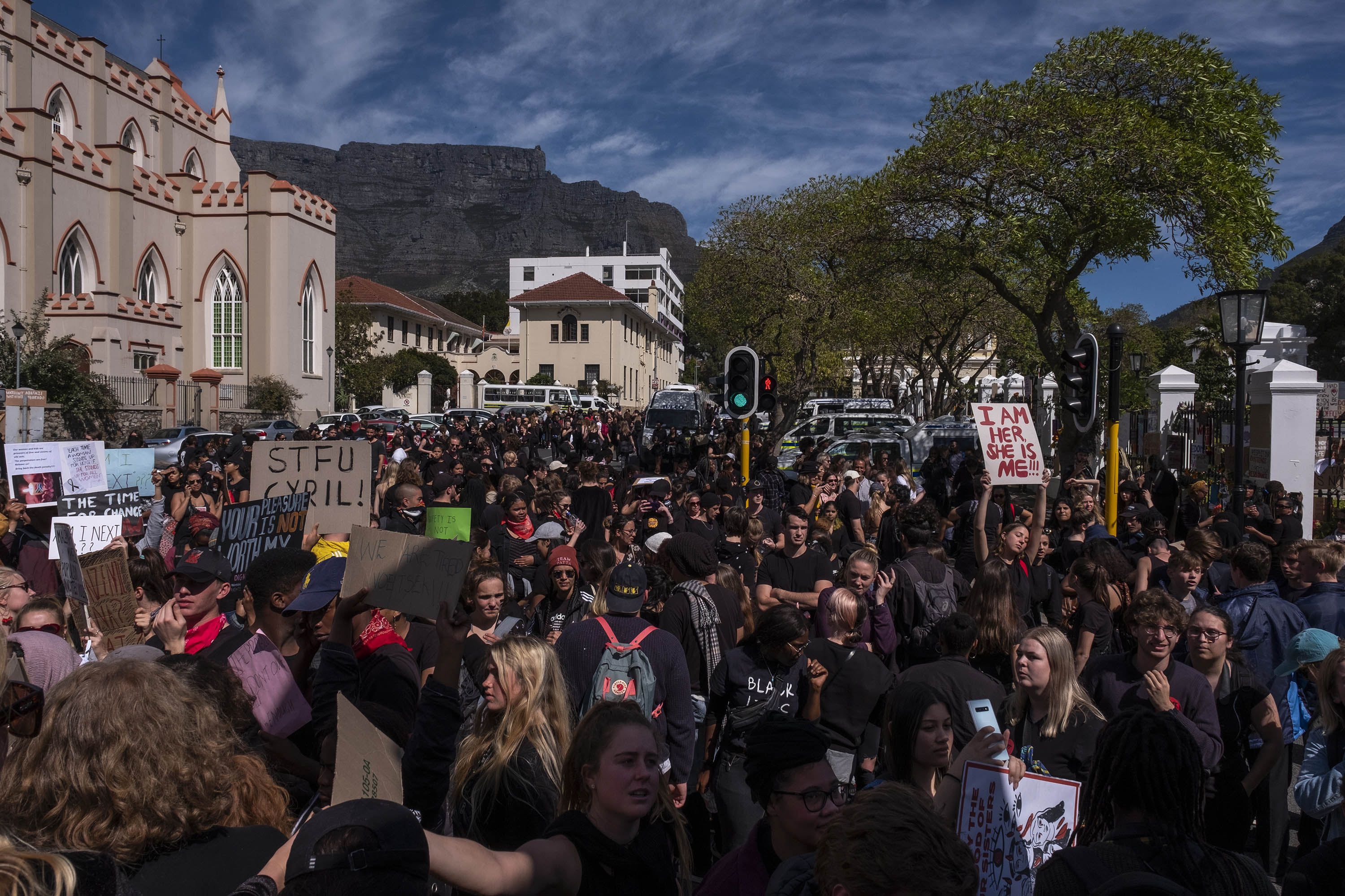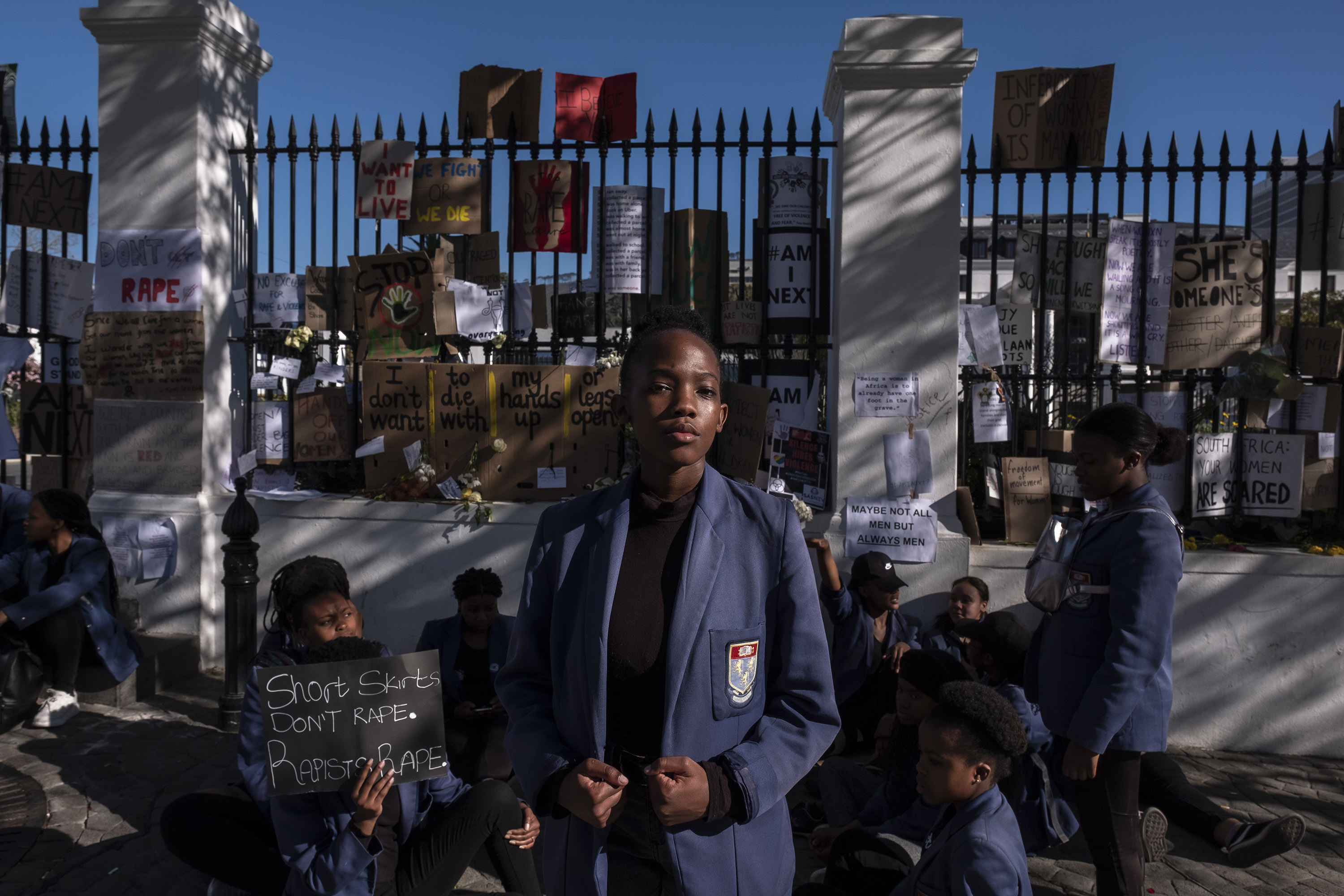In Pictures | Women protest against gender-based violence
Women’s voices reverberated in fury as protesters honoured those who have been raped and murdered in South Africa, and demanded that the government take better action against perpetrators.
Author:
6 September 2019

Khanyisile is also the cousin of Uyinene Mrwetyana. “I’m here to protest against women being raped,” she says. “I’m also a survivor and I’m here to stand for every woman who never had a word to speak out. I’m here to stand for every four or five-year-old child who isn’t capable of standing up for themselves and saying, ‘Enough is Enough!’ The police are not doing anything. I’m here to stand for Uyinene.”


“About a year and a half ago, a neighbour of mine, her daughter passed away,” she explains. “She was raped and murdered by the guy who had a crush on her mom. So I felt obligated to be here on her behalf.”

“I’m a woman who’s concerned, a woman who does not feel safe anymore in a democratic society,” she says. “I decided to come out here as a woman first because we’re being violated so much. It needs to stop. It’s been happening for years, but we haven’t been speaking out and doing so much about it.
“But the time has come now for us to act and react as the youth, as the people that gives these votes to our government. We need to stand up today and we will not be deterred. We will not stop until we see change. We will come tomorrow and the day after. We will come until the government hears us. Until they do something that is tangible. Something we can see. Because currently we’re not seeing anything.
“People rape children and at the end of the day, they still come out. Correctional services is not working right now. The rehabilitation process that they have in the justice system is not working. The person who raped Uyinene and killed her already had some other violations, so the justice system is not rehabilitating. So that’s why we are here today.”

“Honestly, I don’t want to leave my legacy knowing that I didn’t make an impact,” she says. “I’m not gonna stay silent anymore. This has been going on for way too long. So I actually went to the statue [of Louis Botha, outside Parliament in Cape Town]. I painted my hand red. That represents our blood that has been shed. I wanted to make my mark on the statue so it can be there and I know that I did something to make a change.”

“I’m here because I want justice for women,” she says. “I have two little sisters, one goes to high school. They’re definitely vulnerable and I am, too. And not just for my family but for everyone else. It’s been going on for a while, we’ve been silent and it’s just been escalating. So we are literally done being silent. It’s close to home. We are all vulnerable. It’s not happening because of what we wear, where we go … It’s happening any time, it’s happening with people close to us. We can’t trust anybody. It doesn’t matter what we wear, it doesn’t matter how old we are. Old people are getting raped, babies are getting raped. It’s everywhere.”



“The most infuriating thing is that the men who are supposed to be protecting us, according to patriarchy, are the ones that are killing us,” she says. “Why do we have to survive and not live? … Why do we have to fight more than men for our space on this land, whereas men are entitled to their own space and way of living, and it has to always affect us because we are inferior to them? I won’t say it has been a success because not all the rapists and perpetrators have been caught. When we fight we die, when we don’t fight we die. So we might as well fight and die trying, so we know we did our part.”


“What frustrates me is the fact that people are still not taking us seriously as a gender,” she says. “We have to fight to have a voice and, still, people are disregarding it.”






